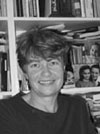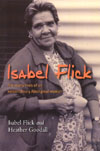|
 | | participants: heather goodall |  |  | | Heather Goodall
Associate Professor
The Centre for Trans/forming Cultures
University of Technology Sydney
|
Most significant contributions to this field
My significant academic contributions are in three areas. Firstly, I have written extensively about the history and significance of place for indigenous people in NSW, the central theme of my 1996 book Invasion to Embassy and many of my articles and book chapters. I have been particularly interested in investigating the dynamic nature of 'place' significance and heritage, in which contemporary and traditional values are frequently in tension and are being negotiated individually and collectively.
Secondly I have analysed the ways environmental issues are used by participants from a range of ethnic and cultural groups involved in cross-cultural social relations. My earlier case studies have involved Aboriginal and non-Aboriginal Australians of Anglo, American or European background, such as my work in the northern floodplain of the Darling River, interviewing graziers and cotton farmers, which has generated articles on the use of conflicts over environmental change to pursue deeper class and racial conflicts. More recently, my work in the ARC-funded project Australians and the Past survey analysis has compared Vietnamese Australians' expressions of memory about places and the past with those of indigenous and other Australians. Very few other scholars are currently comparing such questions across indigenous, Anglo and non-Anglo immigrant communities, making my work particularly relevant to this project. Most recently, I am involved in an ongoing collaborative project with the NSW Department of the Environment and Conservation [DEC: formerly the NSW National Parks and Wildlife Service] investigating the use and interpretation of parklands in southwestern suburban Sydney by various ethnic communities, including Vietnamese, Arabic-speaking, Aboriginal and Anglo-Australians.
Thirdly, I have contributed extensively to debate around the analysis of oral expressions of memory and the politics of 'oral history', particularly in relation to place and memory. One of my articles ['�.the politics of information control' 1989, 1996] has been reprinted as a key article in the field of both indigenous history and oral history analysis and methodology. My recent article 'River Runs Backwards' (2001) has investigated the way in which expressions of memory by Anglo-Australians about environmental change can be elicited and interpreted.
In each of these three areas of interest, and in my teaching, I have been developing and evaluating the use of digital 'new media' particularly in relation to community access. Some of my work on new media was reprinted in the international Oral History Reader (Thomson and Perks, Routledge 1997) and my recent article, on the community documentation of the Aboriginal cemetery at Collarenebri, (2002) describes the development of an extensive database which allows maximum accessibility by the community to a wide range of data. This experience will be applied to the development of an accessible and flexible qualitative database for the Parklands project with DEC to allow agency staff and the community as well as researchers ready access to the interview, photographic and mapped material arising from the project. Most recently, the Migration Heritage Centre has approached the Parklands project team to undertake the development of a website documenting the involvement in fishing on the Georges River by the members of the ethnic groups involved in the project.
Refereed publications last 5 years
Book
2004:Isabel Flick and Heather Goodall: Isabel Flick: the many lives of an extraordinary Aboriginal woman, Allen and Unwin, forthcoming, May.
Book Chapters
2004: (accepted) 'Gender, race and rivers: women and water in northwestern New South Wales' for Kuntala Lahiri-Dutt [ed] Fluid Bonds: Gender in Water Resource Management, forthcoming.
2003: 'Pearl Gibbs', Australian Dictionary of Bibliography entry.
2001: 'The River Runs Backwards: The language of order and disorder on the Darling's northern flood plain.' In Tim Bonihady and Tom Griffiths (ed.) Words for Country: Landscape and Language in Australia, UNSW Press, Sydney pp 30-51.
2001: " 'Speaking what our mothers want us to say': Aboriginal Women, Land and the Western Women's Council, 1980 - 1985', Peggy Brock (ed) Words and Silences: Aboriginal Women, Politics and Land, Allen and Unwin, Sydney pp. 18 - 55.
1999: 'Authority under challenge: Pikampul land and Queen Victoria's law during the British Invasion of Australia' in Martin Daunton and Rick Halpern (eds): Empire and Others: British encounters with indigenous peoples 1600 - 1850, University College Press, London, pp. 260 - 279.
1999: 'Contesting changes on the Paroo and its sister rivers' in Richard Kingsford (ed) A Free-Flowing River: the ecology of the Paroo River, NSW National Parks and Wildlife Service, Hurstville. pp179-200.
Journal Articles
2002: 'Too early yet or not soon enough? reflections on �sharing� histories as process not collection' in Australian Historical Studies, vol 33, number 118:7-24
2002: 'Facing the Dilemmas: the Canadian Museum of Civilisation' The Public Historian, Winter edition, Vol 24:55-63.
2002: 'Mourning, Remembrance and the Politics of Place: a study in the significance of Collarenebri Aboriginal Cemetery' in Public History Review, Vol 9: 72-96.
2001: 'Renewing Country: Aboriginal people and their lands in rangelands environments', in The Rangeland Journal. Vol 23 (1) pp. 99 � 115.
2000: '�Fixing� the Past: modernity, tradition and memory in rural Australia' in Localising Modernities: UTS Review Vol 6, Number 1, pp. 20-40.
2000: with Ashton, P, Connors, J, Hamilton, P and McCarthy: 'Australians and the Past at the University of Technology, Sydney', Public History Review, vol 8, 2000: 157-167
1999: 'Telling Country: Memory, Modernity and Narratives in Rural Australia' in History Workshop Journal, Issue 47, pp.161-190.
Ten career best publications
Books
2004:Isabel Flick and Heather Goodall: Isabel Flick: the many lives of an extraordinary Aboriginal woman, Allen and Unwin, forthcoming, May.
1996: Invasion to Embassy: Land in Aboriginal Politics in NSW from 1770 to 1972 , Black Books and Allen & Unwin. (NSW Premier's Award for Australian History 1997)
Book Chapters
2001: 'The River Runs Backwards: The language of order and disorder on the Darling's northern flood plain.' In Tim Bonihady and Tom Griffiths (ed.) Words for Country: Landscape and Language in Australia, UNSW Press, Sydney pp 30-51.
2001: " 'Speaking what our mothers want us to say': Aboriginal Women, Land and the Western Women's Council, 1980 - 1985', Peggy Brock (ed) Words and Silences: Aboriginal Women, Politics and Land, Allen and Unwin, Sydney pp. 18 - 55.
1999: 'Contesting changes on the Paroo and its sister rivers' in Richard Kingsford (ed) A Free-Flowing River: the ecology of the Paroo River, NSW National Parks and Wildlife Service, Hurstville. pp179-200.
1996: "Aboriginal History and the Politics of Information Control", originally published 1989 in Oral History Association of Australia Journal: 1988, Vol 9, republished in R.White and P.Russell [eds] Memories and Dreams: Reflections on Twentieth Century Australia, Allen and Unwin, pp.77-96.
1996: "Land In Our Own Country: the Aboriginal Land Rights Movement in South Eastern Australia, 1860 to 1914" Originally published in 1990 in Aboriginal History. vol 14[1], republished in Terrible Hard Biscuits, edited by Peter Read and Valerie Chapman, Allen and Unwin, Sydney.
1994: "Colonialism and Catastrophe: Contested Remembrance of Measles and Bombs in a Pitjantjatjara Community" a chapter in: Memory and History in Twentieth Century Australia, edited by Hamilton, P. and Darian-Smith, K. for Oxford University Press. pp. 55-76.
Journal Articles
2002: 'Mourning, Remembrance and the Politics of Place: a study in the significance of Collarenebri Aboriginal Cemetery' in Public History Review, Vol 9: 72-96.
1997: with Damian Lucas: '"Country" Stories: Oral History and Sustainability Research', Sustainability and Social Research , Centre for Rural Social Research, Proceedings of 1997 Conference of the Australian Association for Social Research, Charles Sturt University, Wagga Wagga.
Other evidence of impact and contributions to the field
Awards: My book Invasion to Embassy, (Allen & Unwin and Blackbooks, 1996) won the NSW Premier's Prize for Australian History in 1997. This book was also shortlisted for the South Australian Festival Literary Awards (Non-Fiction) 1998, and was awarded an 'Honourable Mention' by the Centre for Australian Cultural Studies in its National Award for Outstanding Contributions to Australian Culture (1996). In 1993, I was awarded the John Barrett Prize in Australian Studies, for my article '"The Whole Truth and Nothing But...." Reflections of a field worker on the intersections of western law, Aboriginal history and community memory." published in Power, Knowledge and Aborigines: A special issue of the Journal of Australian Studies, 1992: 104-119.
Invited lectures: My work in the areas of memory and place and in Aboriginal history has been recognised in invitations to speak at public or scholarly lectures or to participate the teaching of postgraduate researchers in these fields. I delivered the UTS Research Lecture 2000 on my research into Aboriginal history, memory and place, and environmental history. I was the invited keynote speaker at the New Zealand/Aotearoa Oral History Conference in June, 2001, where I delivered a paper on entitled 'Memory, Community and Place'. The Australian Historical Association invited me to speak at their Challenging Histories conference, October, 2001, a gathering of scholars regarded as contributing significantly to the reshaping of the writing of Australian history since Federation. My paper was consequently placed as the lead article in the resulting volume of refereed papers published as Challenging Histories, a special volume of Australian Historical Studies.
Recent postgraduate teaching: After running a sequence of postgraduate winter schools at UTS, I was one of four key presenters at a post-graduate winter school on Environmental History in June, 2002, on the invitation of Dr Tom Griffith, ANU Research Centre for Social Science and Dr Libby Robin, Centre for Resource and Environmental Studies. I also took up an invitation to be a speaker on 'Memory and Place' at the Australian National University's Centre for Cross Cultural Research Visiting Scholars Program, October, 2002. As a result of my contribution to this program, I have now been invited to speak on the Parklands, Culture and Communities project at the Visiting Scholars Program in 2003, on the theme 'Moving On: The Diaspora of Cultural Heritage'.
I have served on a number of committees and boards in relation to my areas of expertise. I am currently on the Research Committee of the NSW National Parks and Wildlife Service and over the last decade I have served on the NSW History and Literature Board of the NSW Ministry for the Arts and on the History Advisory Panel of the Heritage Council of NSW.
|
|  | | your_feedback |  | |  | | hosted by the api-network |  | | Dedicated to the 'democratisation of knowledge', the API Network is a free electronic gateway specialising on matters Australia. Managed and produced by the Australia Research Institute, the Division of Humanities, Curtin University of Technology, it links public intellectuals through its publications, mailing list, online Forum, chat room and regular posting of news relating to book, journal and ezine publications, conferences, events, tours and funding opportunities in the field of Australian Studies.  
|
|  |

This report has been make possible due to the generous support
of the Australian Research Council, and Curtin University of Technology
|  |
| publications |  |  | Isabel Flick and Heather Goodall, Isabel Flick: The Many Lives of an Extraordinary Aboriginal Woman, Crows Nest, Allen & Unwin, 2004. [details] |
|  |
|
| | contact |  | |  |
|


